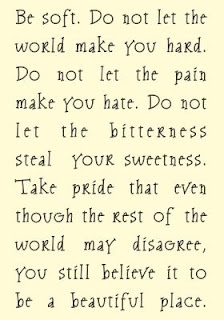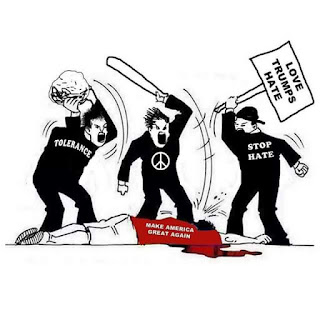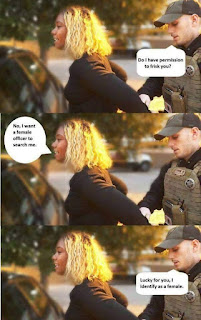The New York Times
written by Chris Buckley and Austin Ramzy
Tuesday September 30, 2014
HONG KONG — They sleep by the thousands on what are normally the busiest boulevards of this crammed, nonstop city. They live on crackers, bananas and bottled water. They clean up their trash, even taking the time to pick out plastic and paper for recycling. Their shield of choice, and the symbol of their cause, is the umbrella: protection against the sun, rain — and pepper spray used by the riot police.
The pro-democracy protesters in Hong Kong appeared headed for a showdown with the authorities on Wednesday, with larger numbers expected over a national holiday and some organizers threatening to escalate the conflict by seizing government buildings.
Yet it has been a diligently clean, exceedingly polite and scrupulously peaceful insurgency, one that supporters are calling the Umbrella Revolution.
“An umbrella looks nonthreatening,” said Chloe Ho, 20, a history student distributing apples, chocolate and wet towels on a six-lane expressway occupied by protesters. “It shows how mild we Hong Kong people are, but when you cross our bottom line, we all come out together, just like the umbrellas all come out at the same time when it rains.”
Hers is a movement without a clear leader, one in which crowds of largely young people are organizing themselves and acting on their own, overtaking months of planning by veterans of the city’s pro-democracy camp. The spontaneous, grass-roots nature of the protest is one of its strengths — it has adapted quickly and seized the momentum from the government — but it may also make it difficult for the movement to accept any compromise that the Chinese government might be willing to offer.
The mass sit-in — and for hardier participants, sleep-in — in several of Hong Kong’s key commercial districts has presented the Chinese leadership with one of its biggest and most unexpected challenges in years. The protesters are demanding the right to elect the city’s leader, or chief executive, without procedural hurdles that would ensure that only Beijing’s favored candidates get on the ballot.
China’s state-run news outlets have depicted the protests as the handiwork of a conspiracy aided by the West to topple the Communist Party. But what leaders in Beijing and Hong Kong face is something even more alien to party thinking: an amorphous movement that does not answer to any particular individual or agenda.
The protesters’ desire for democratic elections was first articulated by organizations dominated by academics and students, but the movement that has blockaded the city streets since the weekend is a cacophony of voices, with demands including face-to-face dialogue with the Chinese government’s handpicked chief executive, Leung Chun-ying; his immediate resignation; and more ambitious, and unlikely, concessions from the central government.
“The strengths of these protests are that it’s so decentralized, so first of all you can’t crush them through arresting the leaders,” said Maya Wang, a researcher at Human Rights Watch in Hong Kong who has monitored the demonstrations. “The weaknesses are, of course, that there could be confusions and splits as the situation quickly develops. So far it has worked remarkably well, but it might not further along the way.”
Tensions in Hong Kong over election rules built for months and reached a peak on Friday, when students stormed past the police and occupied the forecourt of the Hong Kong government’s headquarters. The standoff there drew more protesters who gathered outside, growing into a noisy carnival of disgruntled residents calling for democracy. On Sunday afternoon, however, the police moved in with tear gas.
The televised spectacle of students scattered by tear gas triggered an outpouring of anger against the Hong Kong government that drew tens of thousands onto the streets on Sunday night. On Monday, the crowds were even larger, and they grew again on Tuesday.
The protesters have commandeered city buses, using them as bulletin boards for signs and messages. They have built barricades from bamboo scaffolding and borrowed cars to fend off possible police incursions.
“I came here because I don’t want to lose my Hong Kong,” said Bo Au-yeung, 20, a saleswoman at a clothing store who had volunteered to run a supply station. “I don’t want Hong Kong to be the next China.”
The society that has sprung up on the baking-hot roads has already developed its own rhythms. The days begin mostly with university students, retirees and middle-class office workers who have taken time off or been given leave by sympathetic bosses.
In the evenings, as temperatures cool and the workday ends, the crowds expand and become more diverse. Teenagers do their homework on the streets. And then the die-hards settle in for the night, sleeping under the skies on newspapers or foam before heading home in the morning for a shower and a nap.
“We want to stay clean to show that we are normal citizens fighting for our democracy,” said Billy Chan, 21, a computer science student who was heading home on Tuesday morning to wash up.
Other supporters arrived in the morning, saying they wanted to ensure that crowd numbers remained strong enough to ward off the police and impress those watching through the many television cameras. Joe Tang, an 18-year-old student wearing a black T-shirt decorated with a yellow ribbon, the uniform of many protesters, said he was a little embarrassed to seem so idealistic.
“It sounds stupid, but I came for liberty and democracy,” he said, as he prepared to hunker down for a day in the hot sun under an umbrella.
Many participants in the Umbrella Revolution acknowledged that their movement could well fail, scattered by a fresh police crackdown or just petering out. But many also said that their street movement, with its fastidious attention to hygiene and good manners and signs apologizing for “causing inconvenience” to other residents, was more than a reflection of Hong Kongers’ neat ways.
The trash sorting, constant speeches from megaphones and self-organized medical teams send a message of determination to leaders, and the world, they said.
Jeff Chan, a movie cameraman who had just spent two hours sorting trash, said he and about 200 other members of Hong Kong’s film industry had thrown themselves into supporting the protests. Cameramen, production and post-production units each had separate tasks. He said his motivation for cleaning trash was very simple: “I just can’t stand to see garbage.”







































No comments:
Post a Comment